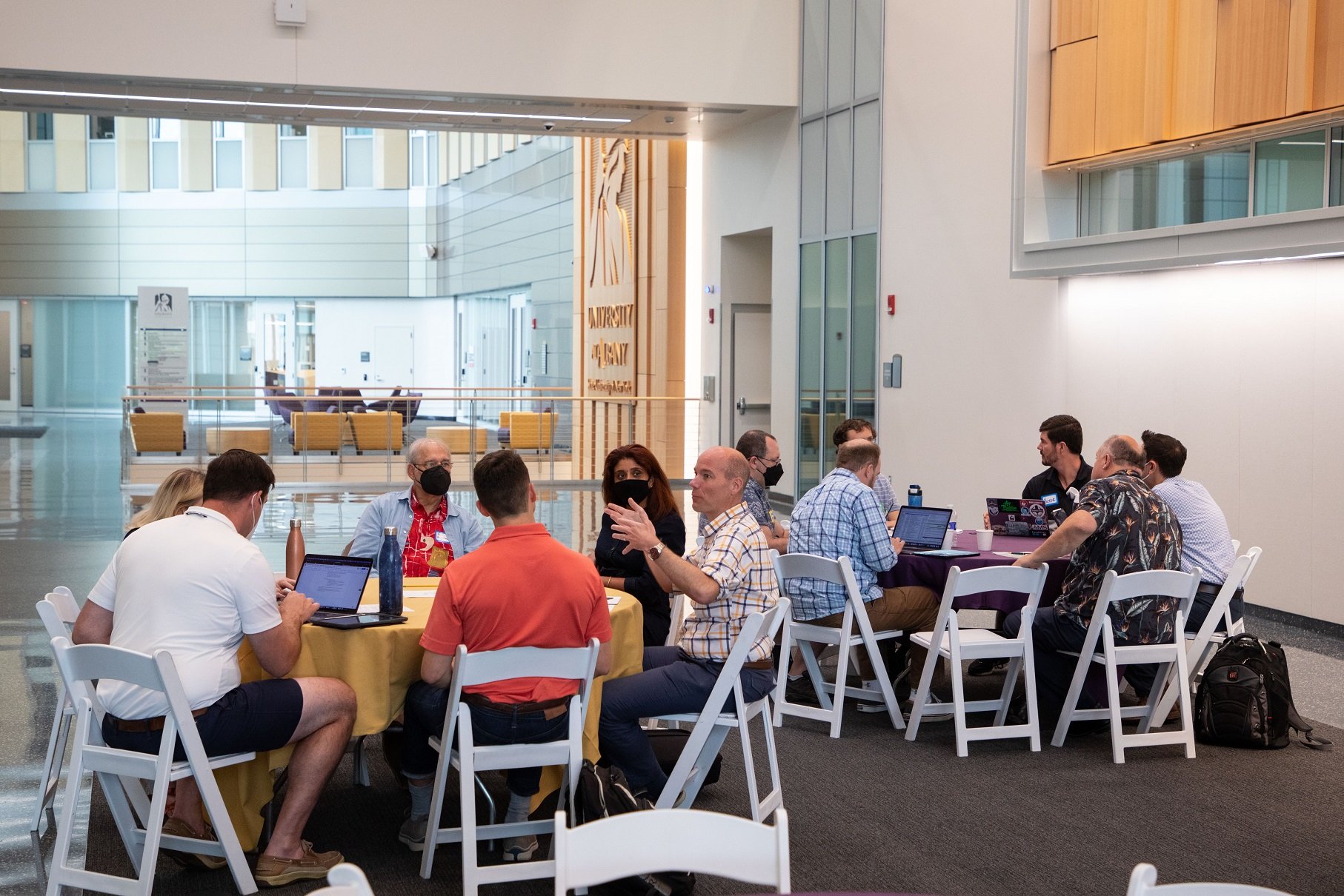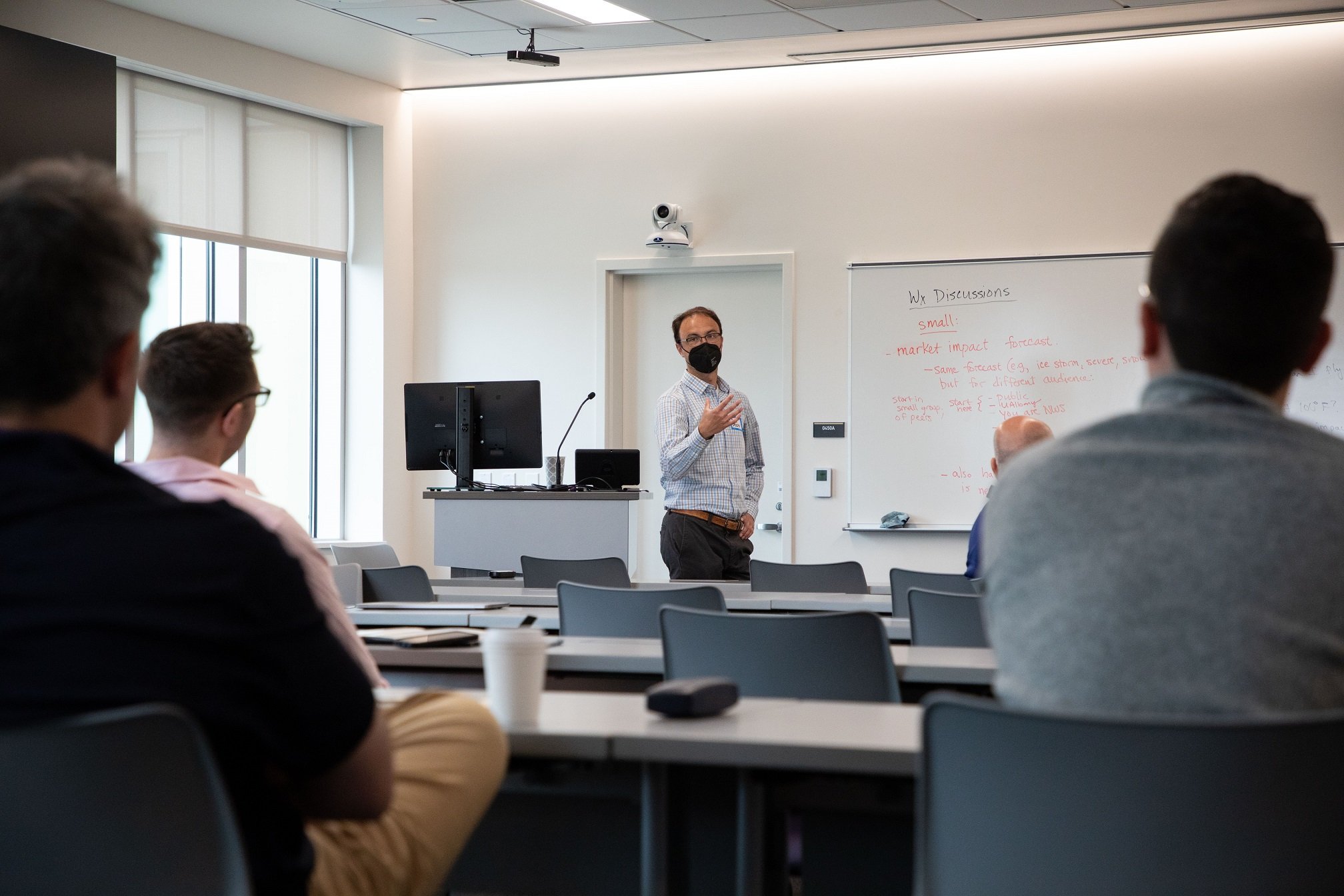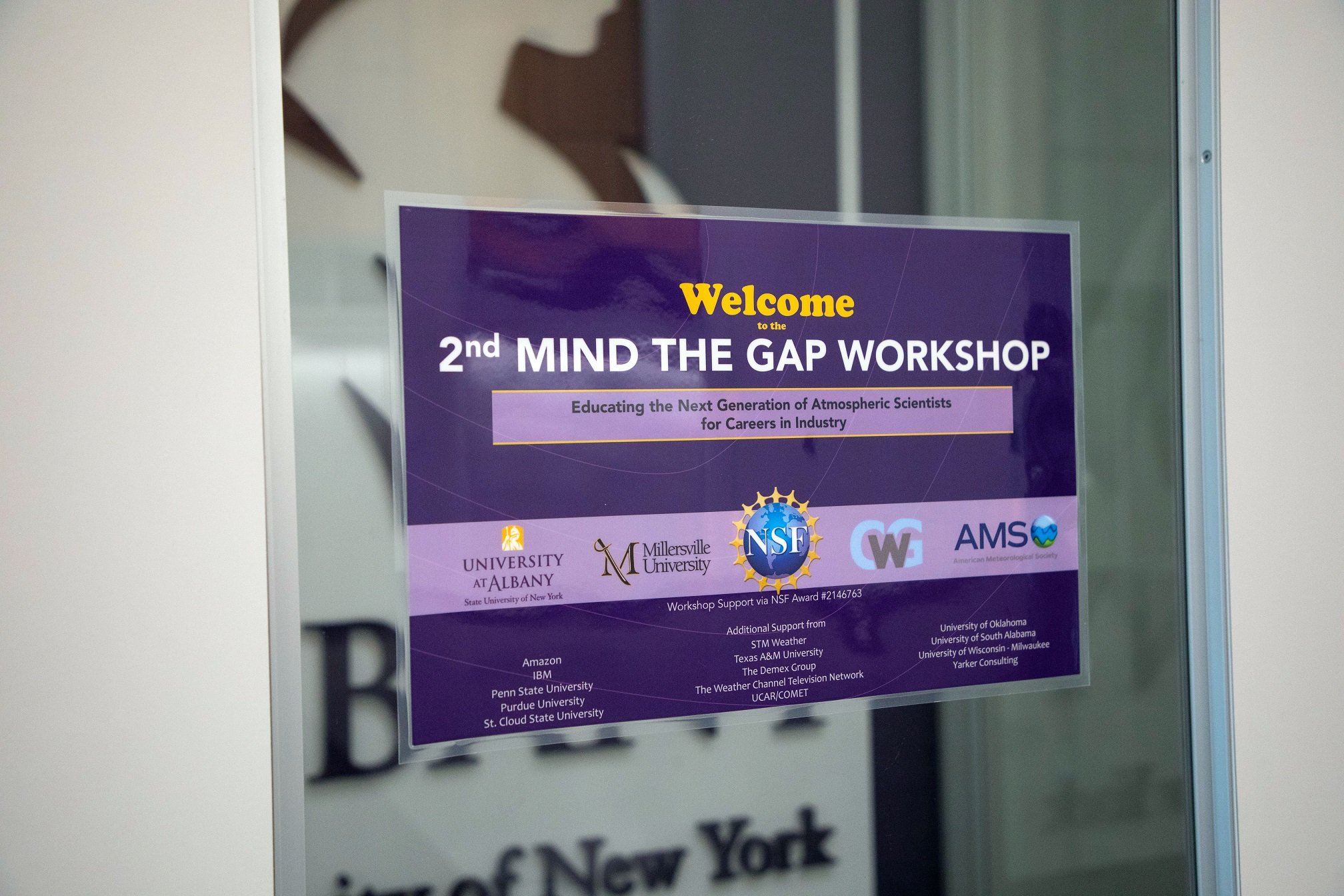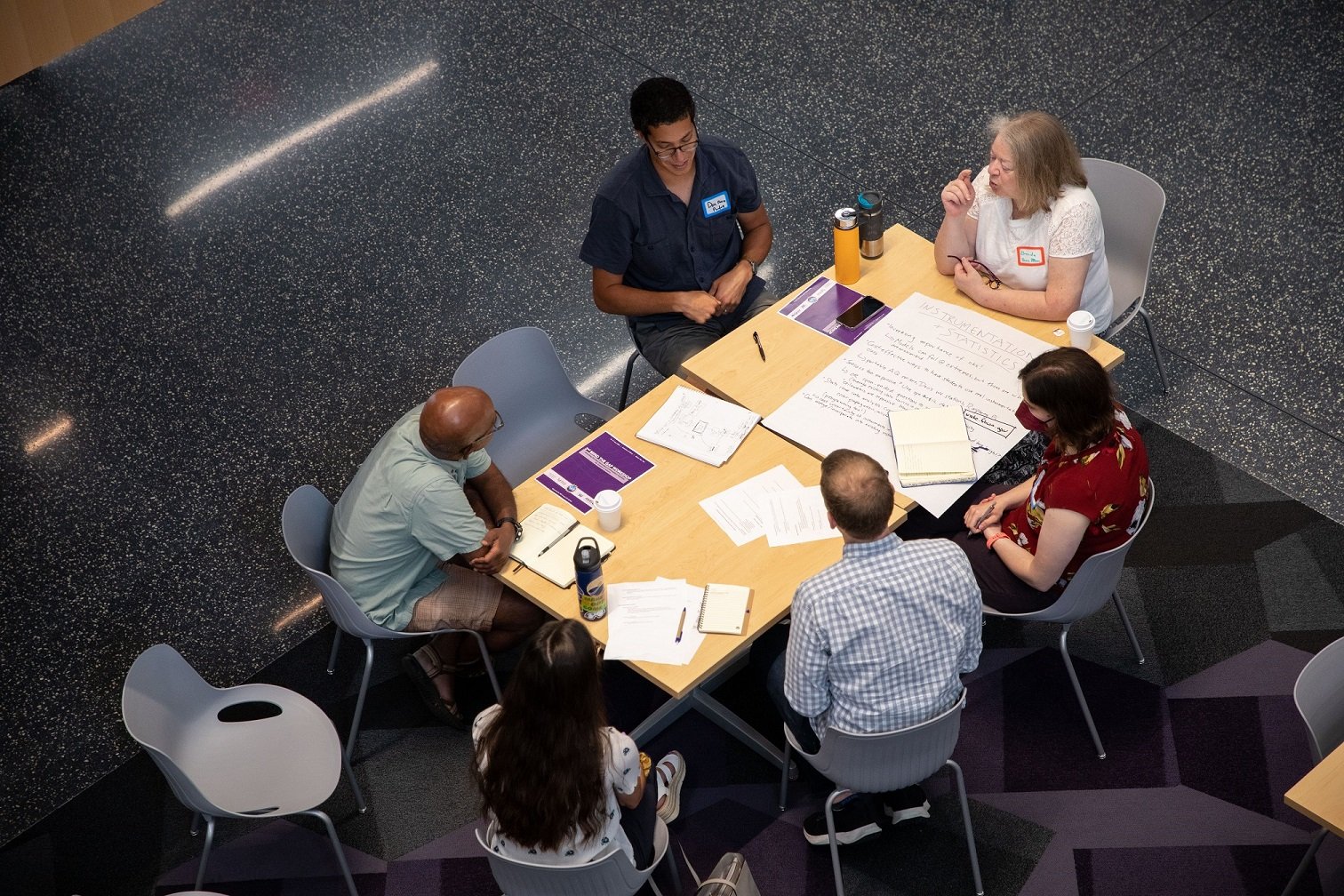ETEC Workshop Prepares Next Generation of Atmospheric Scientists for Industry Careers
ALBANY, N.Y. (June 30, 2022) – The University at Albany’s linkage of weather and climate scientists with private sector organizations was on full display at ETEC earlier this month.
UAlbany hosted a three-day “Mind the Gap” workshop from June 15 to 17 that brought together university and private sector representatives to create new course materials that will prepare the next generation of atmospheric scientists for success in industry careers.
The National Science Foundation-sponsored workshop included faculty from around 30 universities and 25 representatives from large private sector companies such as Amazon, IBM, the Weather Channel and Liberty Mutual, along with start-ups and independent consultant groups.
“Driven by the growth of atmospheric science applications in the private sector, the career opportunities for graduates in the weather, water, and climate sciences has shifted,” said Andrea Lang, associate professor in the Department of Atmospheric and Environmental Sciences, who led the workshop. “We are directly addressing this changing employment landscape by bringing together leading atmospheric science faculty from across the country with industry experts.”
Mind the Gap
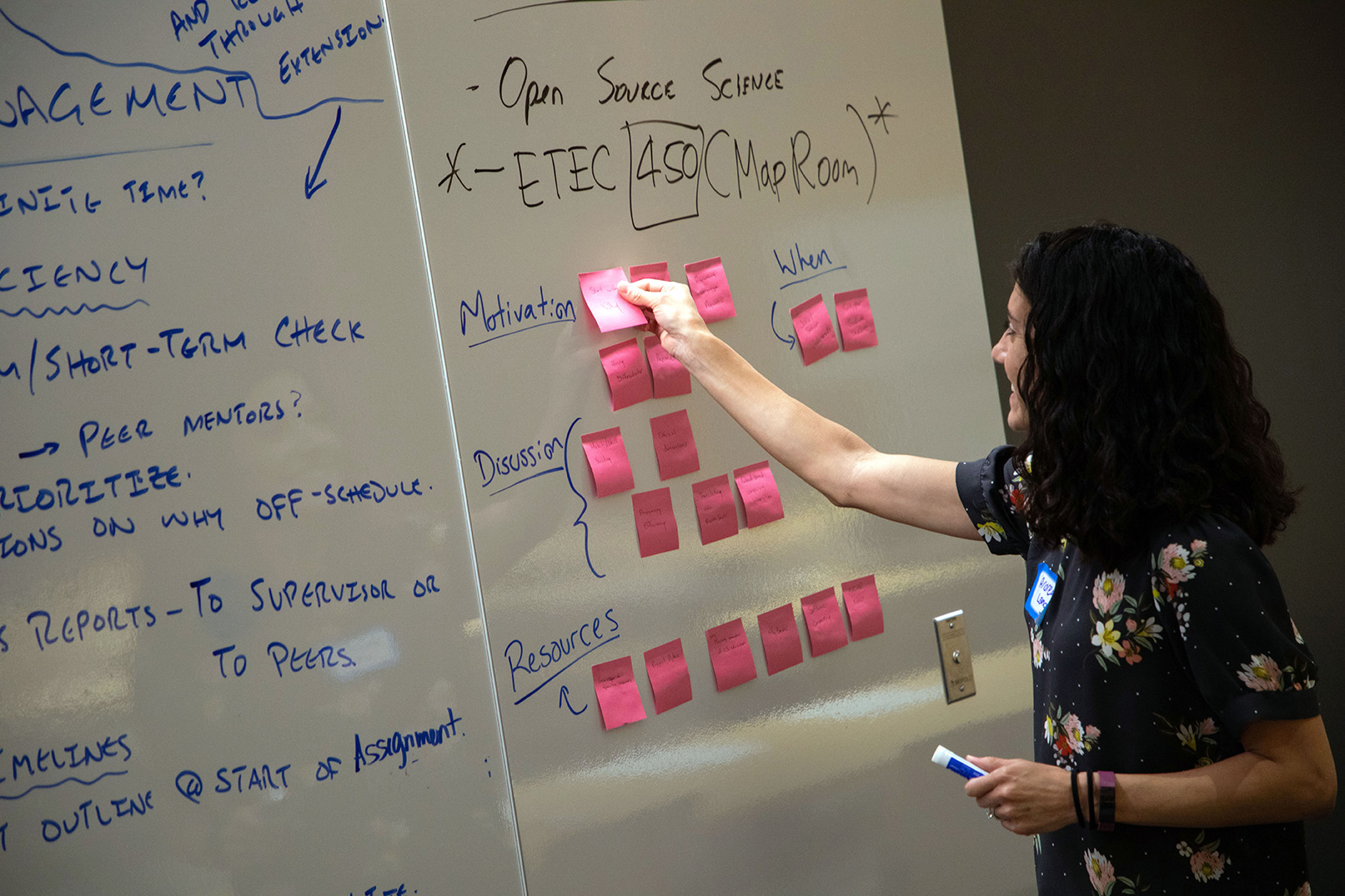
A recent update to the Occupational Outlook Handbook published by the Bureau of Labor Statistics projects an increase in job availability of 8 percent for atmospheric scientists between 2020 and 2030. Specifically, it lists the best job prospects for meteorologists to be in the private industry.
“New types of computer models have vastly improved the accuracy of forecasts and allowed atmospheric scientists to tailor forecasts to specific purposes. This should maintain, and perhaps increase, the need for atmospheric scientists working in private industry as businesses demand more specialized weather information,” the publication states.
Through “Mind the Gap,” academics and private sector representatives are teaming up with the workshop’s American Meteorological Society committee to develop pedagogical modules, tools and datasets that can be implemented into any atmospheric science program and help fill common gaps seen by employers.
The ETEC workshop featured presentations, panel discussions and working group breakout sessions to exchange information and develop new curriculum ideas. It served as a follow-up to a similar NSF-sponsored workshop held in 2019 at the National Center for Atmospheric Research (NCAR) in Boulder, Colo.
Participants first met through four virtual sessions leading up to the June event.
“Hosting this workshop at UAlbany not only builds on the strong academic reputation of the Department of Atmospheric and Environmental Sciences, but also showcases the potential of ETEC as an innovative teaching and learning environment,” Lang said.
University-Industry Collaboration
Last November, ETEC, a $180 million, 246,000 square-foot research and development complex opened on the Uptown Campus, housing all of the University's weather and climate researchers, along with the nation’s first College of Emergency Preparedness, Homeland Security and Cybersecurity, together under one roof. It is also the new home of the National Weather Service’s Albany Weather Forecast Office.
Hosting “Mind the Gap” adds to UAlbany’s growing list of collaborations with private sector organizations in the weather and climate space. This includes a new partnership with IBM researchers to examine weather and climate impacts on water, transportation and renewable energy systems in New York.
In March, the University hosted energy industry executives from more than 20 companies at ETEC for a two-day planning meeting that offered an overview of Weather Innovation, Smart Energy and Resilience (WISER), a newly proposed NSF-supported Industry-University Cooperative Research Center.
If selected, WISER will be based at UAlbany, through collaboration with industry, government, and academic partners. It will also offer opportunities for undergraduate and graduate students to participate in research and be exposed to industry-academia partnerships.






